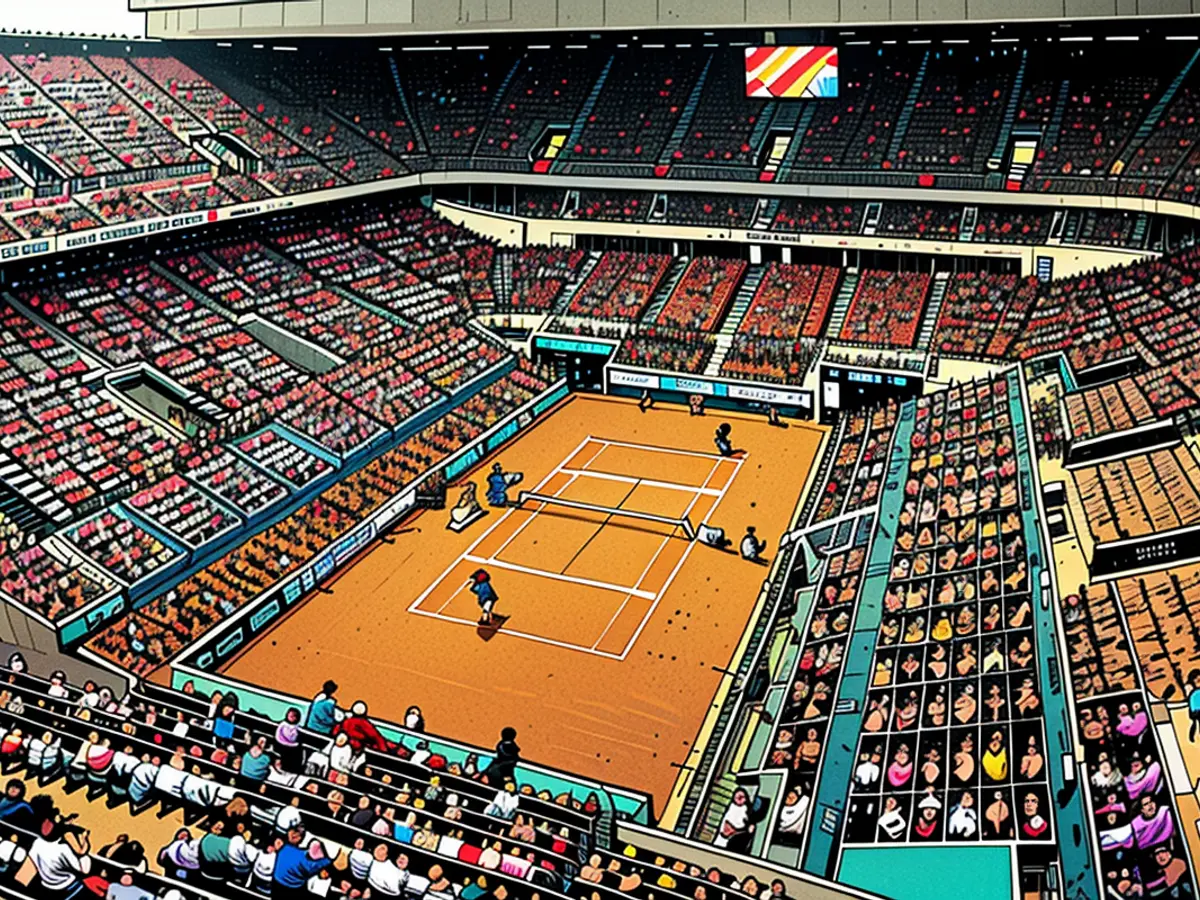Katie Ledecky: The rise of an Olympic great
The race, a 200m freestyle duel which he had instigated, was such a significant moment in his teenage life that he wrote about it for an English high school project. “How Katie managed to surpass me in my primary sport baffled me,” he wrote. “Why can’t I beat my younger sister?”
He was a high-achieving teenager; a freshman selected for his high school championship swimming team, a perfect-grade student who had hopes of representing an Ivy League swimming team. And he was as dedicated to the sport as his sister; waking up at 4:15 a.m. for practice, swimming morning after morning, looking down at nothing but the black line at the bottom of the pool before school.
Yet he came to realize on that summer’s night thathis sister, whom he would compete against at almost anything – from pancake eating contests to board games – was the more talented swimmer.
What he didn’t recognize at the time, and no one in the family did – not even when she reached her first Olympic final – was that Katie Ledecky would become one of the greatest swimmers in history.
“She would typically beat my times from the year prior despite being three years younger and eventually she got me around the time I was a freshman and sophomore in high school,” Michael Ledecky tells CNN Sport. “But even then, I was exceptionally proud of what Katie was doing.”
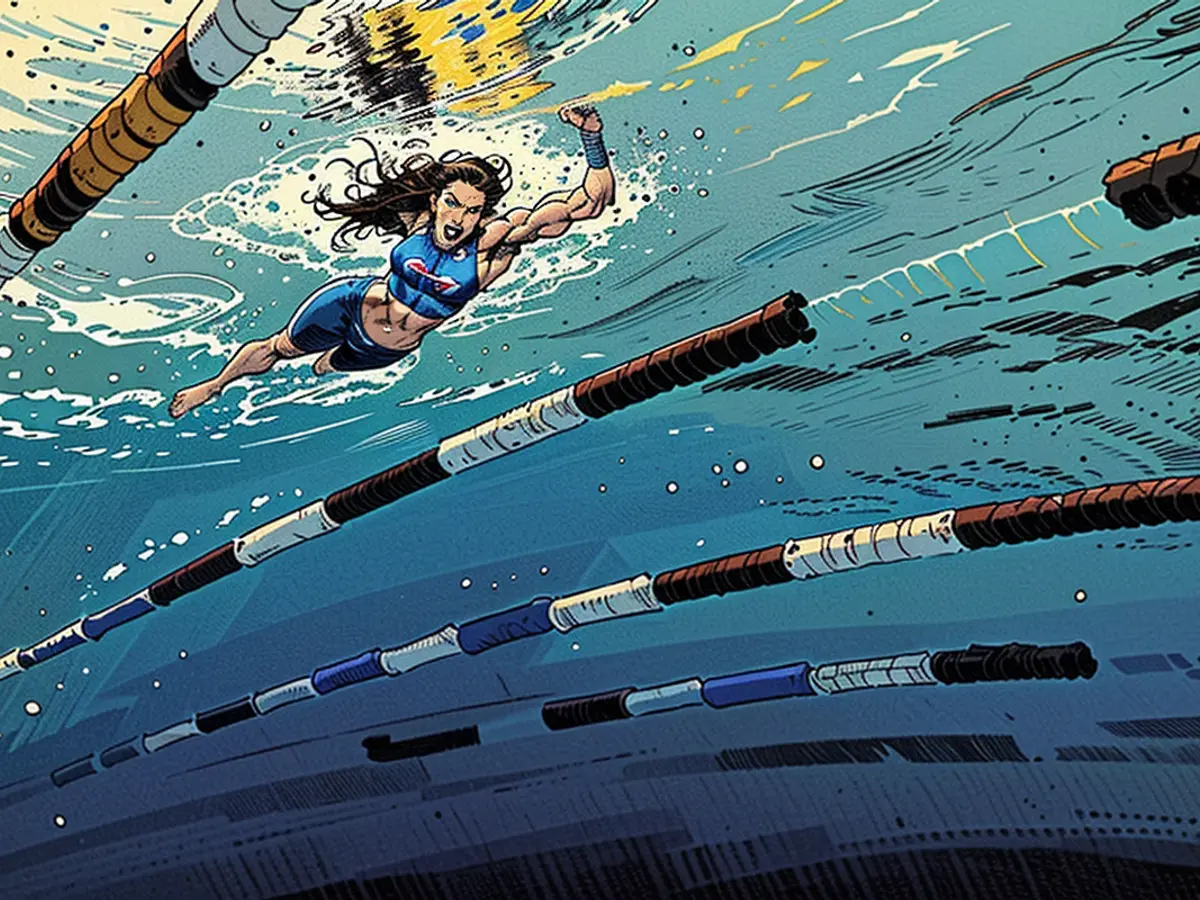
The following fall she secured her first national age group record. “A very old record from the 1970s,” her brother recalls. “That really showed us she could take swimming well beyond the local competitions that she was winning.”
She would go on to break more records, win far more significant races: seven Olympic golds, a record 26 world championships medals, own 16 of the fastest 800m freestyle times ever swum by a woman, set 19 of the fastest 1500m freestyle times in history.
An Olympic great and still aged just 27, how did a thoughtful child who went to a private girls’ school in Bethesda, Maryland – a “truly mediocre swimmer” as she describes her six-year-old self – become a history-making, groundbreaking athlete with preternatural calm in the high noon moments of competition?
The teenager who achieved the unthinkable
In the dining hall of London’s Olympic Village, a few hours before her first Olympic final, Ledecky is eating lunch on her own. To onlookers, the 15-year-old appears calm, unruffled; characteristics which would become her hallmark over the next decade or so of competition.
“She was just sitting by herself,” Russell Mark, USA Swimming’s high-performance consultant at the time, tells CNN Sport. “Me and my colleague, George, thought, ‘Wow, she is so calm.’
“I recalled that story with her in the last few years and she remembers that lunch being so nervous, but that’s not how I remembered it at the time,” he adds, laughing.
That evening, at the London Aquatics Centre, Prince William and his wife Catherine are in attendance to cheer home favorite, world record holder and defending champion Rebecca Adlington in a race regarded as a head-to-head between the Briton and rising star Lotte Friis.
Little attention is given to Ledecky, competing in her first international event. “Invisibility would be my superpower,” she writes of that race in her memoir, “Just Add Water.”

When Adlington walks out onto the arena, the roars are loud enough to uproot trees. Ledecky tells herself the fans are singing “Ledecky” rather than “Becky,” and channels their energy as she aims for the unthinkable.
No one thinks she can topple the double Olympic champion in the most anticipated pool race of the Games, not even when, ignoring her coach’s advice, she sets off hard and fast. Though she does heed one piece of guidance from him, which Ledecky says in her book “changed everything,” which is to breathe more to her right side.
At 150m, the teenager is leading at world-record pace. By the halfway mark, she is still ahead.
“I couldn’t believe what I was watching,” says Michael, who was somewhere high in the rafters, “cheering my head off.”
As the race approaches the final 100m, Ledecky has a handsome lead, the world record is still within sight. With 50m to go, victory is assured and the battle is now between her and the clock, her rivals left to race among themselves. Commentators are aghast.
In one of the most extraordinary performances in Olympic history, Ledecky touches home in eight minutes, 14.63 seconds, then the second-fastest women’s 800m freestyle in history.
In her autobiography, she writes about her parents musing over how they would soothe their daughter’s post-race disappointment after she had called them in the lead-up and talked about winning a medal. With the benefit of hindsight, her brother realized his sister’s mindset was different.
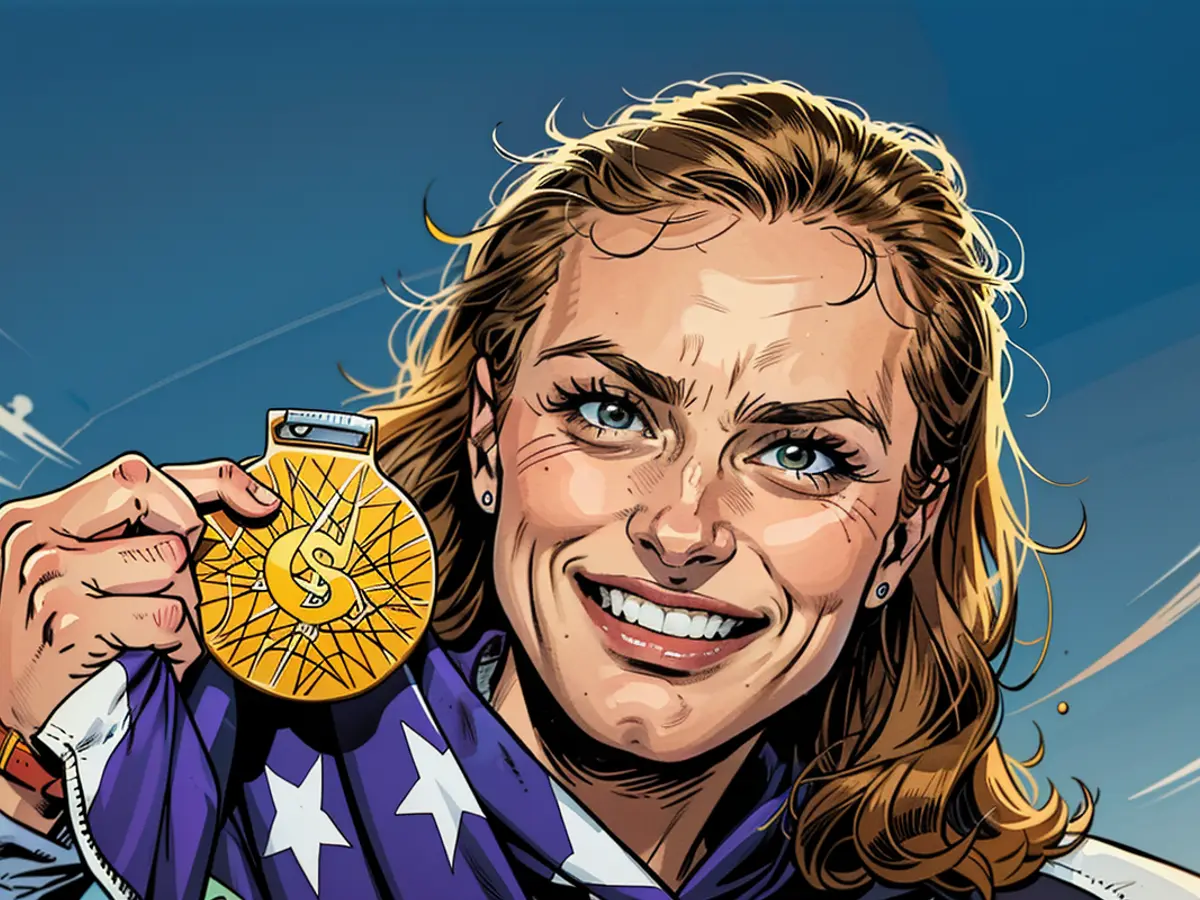
“She was giving us advice on where we could stand for the medal ceremony if she got a medal, she was probably using the language, ‘If I get a medal,’ but she was saying it almost with the confidence of, ‘When I get a medal,’” he says.
The high school student who hadn’t told anyone other than her coach that her goal forthe London Gameswas to make the US team had become the youngest Olympic gold medalist in her event’s history.
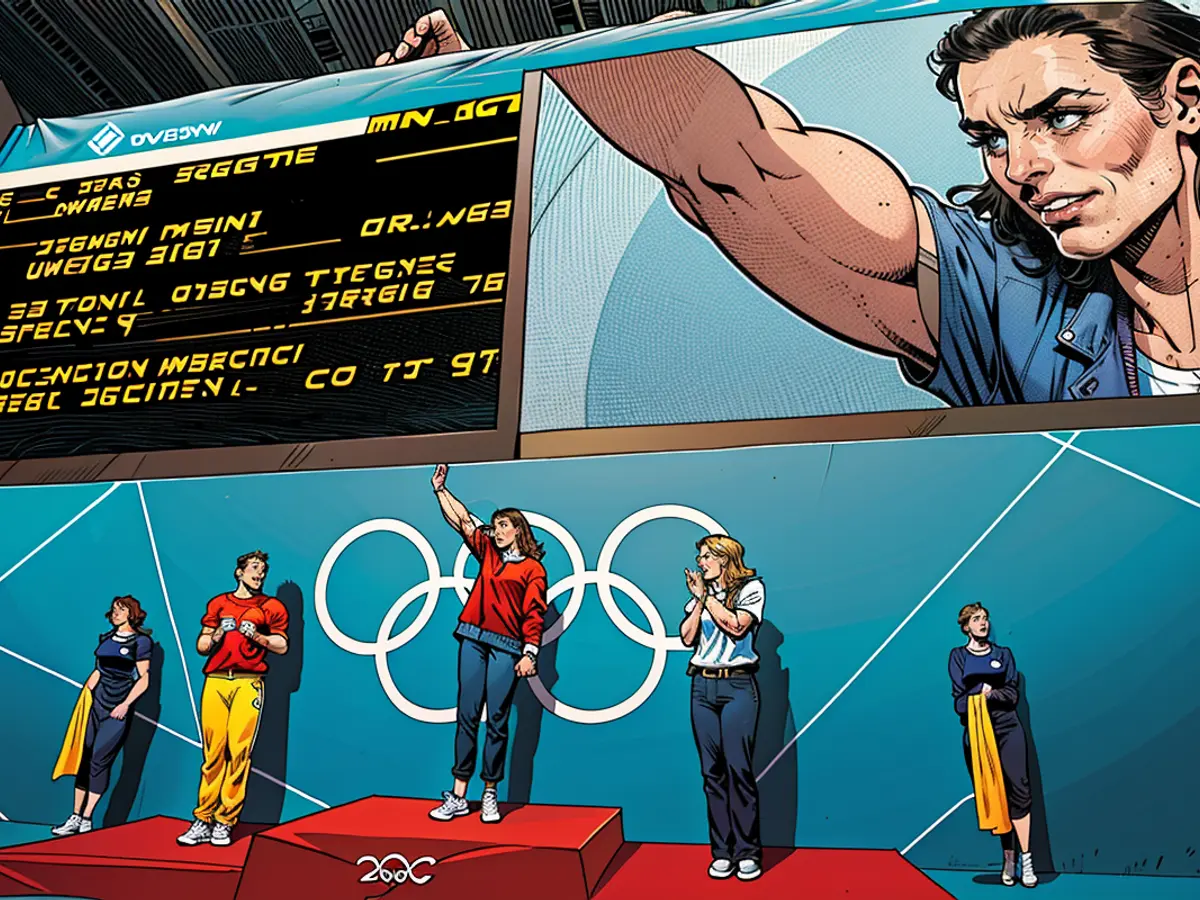
The million-dollar question
Success in elite sport is never without warning. It may come sooner than expected as an athlete bursts onto the world stage, but before the glory, there are almost always signs in the preceding years, telling those within the sport to take note of a special talent emerging.
In eighth grade, Ledecky competed against students four years older than her and won five events. By this time, she was was registering 40 miles a week in the pool. There were hints of what was to come, yet, as one of her former coaches explains, athletically at least in the world of swimming, she didn’t stand out.
“She doesn’t have a particularly large wingspan like Michael Phelps had. She doesn’t have a dominant, explosive jump or power like some of the more typical sprinters,” Bruce Gemmell, who became Ledecky’s coach after London 2012, tells CNN.
What makes Ledecky the driven athlete who would privately set swimming ‘want times’ for herself as a child is the “million-dollar question” says Gemmell. But, at the heart of her success, he says, is her love for the work, the practice, “the grind.”
“When I would introduce, or give her a quote-unquote new skill, she didn’t immediately adapt to it. But I would always find her working on it on her own for 15 minutes or half an hour every day for two or three weeks in a row until she became proficient at it,” Gemmell adds.
“There were times when I introduced something to her and forget about it, quite frankly. And six months later, I would say, ‘Why are you doing that? Or why are you working on that?’ And she would say, ‘You showed me to do it or told me to do it or ask me to do it.’ She was still working on it, and I forgot.”

Gemmell remembers Ledecky working on crossover turns, describing her initially as being extremely awkward at the transition from backstroke to breaststroke. She would practice on it on her own for 15 minutes each day, then introduce it in training sessions before, following three years of methodical self-improvement, she used it in meets.
“Eventually, she became the American record holder in the individual medley, which she had no right in doing because she’s not particularly good at the three other strokes, but through sheer grit and determination and willpower on her part, she made her way to become American record holder in it,” he says.
“It reminds me of a Michael Jordan type of person who just loves doing the work ... I imagine it is true for the elite of the elite of the elite.”
‘Just trying hard’
On June 25, 2003, a seven-year-old Ledecky is competing in her first race, a 25-yard freestyle for the eight and unders. She finishes second. On the pool deck, her father conducts a light-hearted interview with his exhausted daughter after the race.
“What were you thinking about in the pool?’ he asks. “Nothing,” comes the reply. “Just trying to finish, huh?” her father follows up. “Just trying hard,” says Ledecky, who says in her autobiography that her approach to the sport has not changed since her competitive debut.
But there is more to her success than grit and hard work.
Mark says she is a “student of the sport and her own swimming.” “Insanely” competitive is how Gemmell describes his former pupil, a trait her brother testifies to as well.
Typically, an elite swimmer will have nine or 10 training sessions a week – Ledecky these days swims every day. It takes a certain personality to thrive when alone with their thoughts in the water for such a period, but there is nowhere Ledecky would rather be.
“It’s special to see that joy that she brings into what she does,” says her brother, explaining that a swimmer needs to embrace “monotony and repetition.”
His sister, he says, has a “positive internal monologue” and an ability to “shut her brain off” at certain points in a race, putting her trust in the work she had done over the years.
“She would race in a dark room as opposed to prefer to be under the media spotlight, just to get better against herself,” Gemmell says. “It’s in her DNA or something.”
A lineage of high achievers
Talent, an athlete’s hardware, is not enough in sport. There must be opportunity, a chance to thrive. Success is never self-made.
For Ledecky, the stars aligned when the family moved to an affluent Maryland area, where there was access to pools and high-level coaching.
An “incubator for dedicated swimmers” is how Ledecky describes the area in her book. Waiting lists for swim clubs were common. In fact, the Ledeckys’ didn’t join their nearest swim club because of a multi-year waiting list.
“There aren’t many areas in the world that are better than the DC area to become an elite athlete because you have the resources there and you have the community,” her brother says.

To perhaps truly grasp how and why a young Ledecky “rarely wavered” from her dedication to swimming – from eating the right foods to going to bed early and doing homework on the weekends – the family tree offers some insight. It is a lineage of high achievers, not of outstanding athletic achievement but of excellence in their chosen fields, nonetheless.
Her father David is a Harvard-educated lawyer; her mother Mary Gen was a collegiate swimmer. Her uncle Jon co-owns the NHL’s New York Islanders, while her brother also graduated from Harvard. Ledecky, of course, is herself a Stanford alumnus.
But it is perhaps her grandparents who contributed to her will to win the most.
Ledecky dedicates a chapter each to her grandparents in her recently published memoir. “I think that indicates how much meaning she takes from them,” her brother says.
It was her grandmothers Ledecky thought of in the 1500m freestyle Olympic final in Tokyo following defeat in the 200m freestyle that same evening, giving her purpose to dig deeper, the strength to overcome disappointment and make history by becoming the first woman to win Olympic gold in the event.
At the 2015 world championships in Kazan, Russia, where she twice broke the 1500m freestyle world record, she thought of her grandfathers as she swam to glory in the final, having dreamed about them two nights before the race.
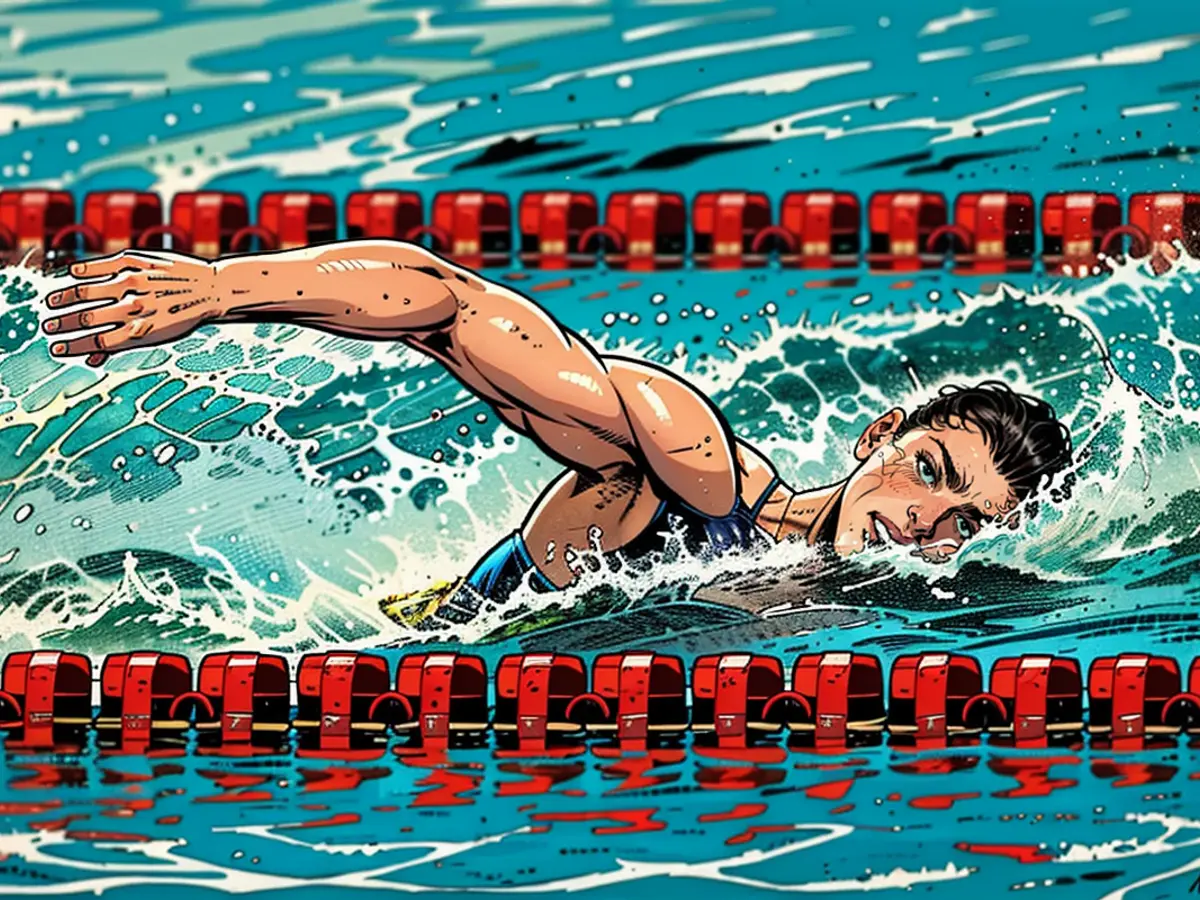
Her maternal grandfather, Edward Hagan, who died when Ledecky was 11, was a Navy doctor who went to war in 1943, aged 26 years old, and was awarded the Silver Star, two Bronze Stars and a purple heart for his service. “He had a burning desire to make a difference,” Ledecky writes of the man whom it is said she shares her optimism and reserve, and the man who successfully campaigned for every elementary school in his hometown of Woolaston, North Dakota, to offer swimming lessons after his own daughter, one of Ledecky’s aunts, fell off a dock as a four-year-old.
Ledecky is named after her maternal grandmother, Kathleen, who grew up on a cattle ranch, became a nurse and a mother of seven. She is 98 years old and a role model for Ledecky, she writes, for her upbeat attitude and perspective on life.
Her paternal grandmother Berta, a writer, “blazed through in elite education,” says Ledecky and as a college student spent a year translating for Albert Einstein at the Polytechnic Institute of Brooklyn.
Jaromir “Jerry” Ledecky, her paternal grandfather, emigrated to America from Czechoslovakia in 1947 on a scholarship to study at Rutgers in New York and was warned not to return to his homeland by his father after the Soviet coup d’état a year later.
He worked as a dishwasher while putting himself through university, earned a masters, a Ph.D, and in the final year of his life taught himself Swedish, the eighth language in which he became fluent. “I’d like to imagine I inherited some of my nerve and perseverance from him,” writes Ledecky.
In her autobiography, Ledecky describes the family motto as “doing your best” and her parents as the total opposite of “stage parents.”
“They matched our energy and enthusiasm and made sure we had fun along the way,” she says of the support her parents offered.
Her brother says that “striving to be your best was encouraged” and that their parents would provide “the resources and the time [needed] to succeed.”
What her brother doesn’t mention during the interview, but Ledecky does in her memoir, is the influence he has had on his younger sister, to whom she also dedicates a chapter in her book. If Michael had been into another sport, then swimming may have lost out on a great champion.
“Whatever Michael wanted to do, I wanted to do,” she writes, explaining that the siblings would “soft coach” each other in their search for perfection in the pool.
“He made me feel it was OK to be a bit different, a bit nerdy, or quirky ... I saw the joy Michael took in setting big goals for himself and reaching them.”
The ‘eureka’ moment
Aged 14, Ledecky and her then coach Yuri Suguiyama stumbled upon what she calls a “true eureka moment,” a freestyle technique based on Michael Phelps’ “galloping” stroke which propelled her forward with increasing speed.
“This modification was the best thing that could’ve happened to my swimming style,” she writes.
It has often been described that her technique of breathing to one sideis like that of a man’s, something which bothers Ledecky. “Technique has no gender,” she says in her book.
The consistency of her rhythm, tempo and cadence are also key to her success, explains Mark, attributing her reliability to her mechanics.
“I would say her stroke is the model,” he says. “The efficiency, no wasted movements. The position she gets herself into while it takes skill and coordination, it all starts with the biomechanical foundation of her strokes. While there’s some natural foundation, she puts a lot of thought into her mechanics and maintaining it.”
Mark refers to the ‘catch,’ which is the first part of the underwater stroke, getting the palm of the hand to push water back towards the feet as early as possible, the key to moving forward efficiently.
“Most people, when they take the breath that positioning is really hard to get to because you have to turn your head to one side, your body turns to one side, making it an obstacle to get that catch position with your non-breathing arm, so she’s great at it,” he says.
Ledecky says her technique has changed slightly under the tutelage of Andrew Nesty in Gainesville, Florida, whose training group she joined after the Tokyo Olympics. Her kick has been refined, she says in her book, her stroke is longer, her rotation recalibrated. She was even told to become more athletic.
Perhaps ominously for her competitors in Paris, she is swimming faster than she has for years. Her 800m freestyle time at the 2023 USA swimming championships in Indianapolis was her fastest over the distance since the Rio Games, where she broke the world record. However, earlier this year, she was beaten in an 800m freestyle final for the first time since 2010, ending an incredible period of dominance in an event in which she is the three-time defending Olympic champion.
“I’ve a big career behind me, but I’m continuing to try to get better,” Ledecky says in her book.
‘A better person than she is a swimmer’
Whatever happens in Paris, whether Ledecky adds to her Olympic haul or not, her legacy is assured.
She is the greatest distance swimmer of all time, excelling from 200m to 1500m freestyle, something thought impossible before Ledecky proved otherwise. Two further golds in the French capital would make her the most successful female swimmer in Olympic history.
“She’s certainly on the Mount Rushmore of American women athletes, but I don’t know if that Mount Rushmore is three athletes or five athletes or seven athletes. She’s just one of them,” says Gemmell.
The most decorated female swimmer in history, Ledecky has broken 14 world records and 37 national records and has never lost an 800m or 1500m freestyle race at the world championships or Olympics. Earlier this year,she received the Presidential Medal of Freedom from US President Joe Biden.
In Paris, however, she will not be the overwhelming favorite in all the events in which she will compete, a testimony to her success, to her inspiring the next generation.
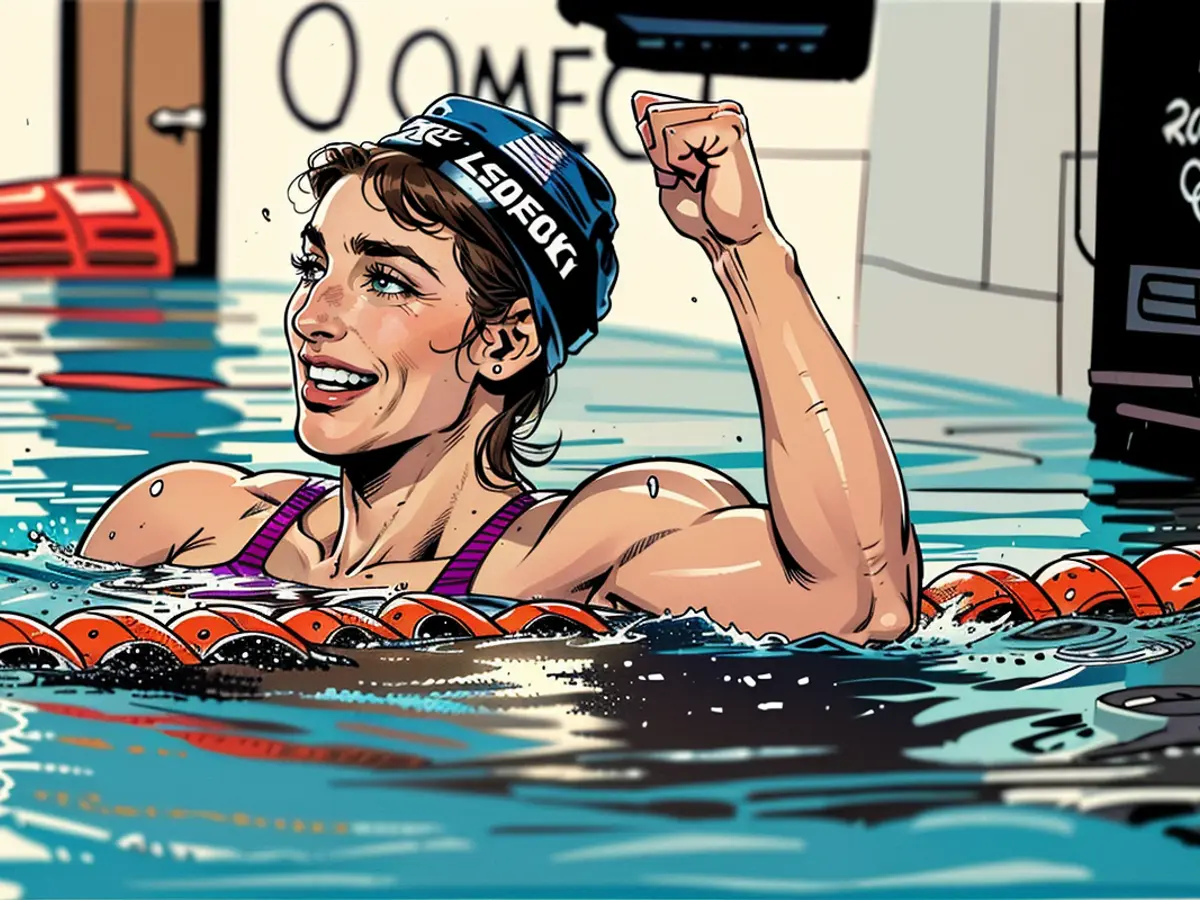
The women’s 400m freestyle final on Saturday, for example, should be one of the most competitive races in the pool as three of the fastest swimmers of all time in the distance – Ledecky, Ariarne Titmus (the world record holder and defending champion) and Summer McIntosh – vie for gold
“I think around how the world watched her swimming the 400 free, the way she swam it just tenaciously and attacking it and decided that they too could do that. And in some ways, the world has caught up with her,” says Gemmell.
In her autobiography, Ledecky writes about her legacy, of how she would like to be remembered for more than her medals and world records. Kindness, to her, is as important as her athletic talent.
It is because of such an outlook that Gemmell loves talking about his erstwhile student.
“She is such a lovely young lady in all senses of the word,” he says. “She is a better person than she is a swimmer – and she is a pretty good swimmer.”
For the Ledecky family, the journey has been unexpected. From beating her brother for the first time to Olympic greatness, it is a story they could not have foretold.
“Katie’s success wasn’t pre-ordained, not inevitable,” her brother says. “She’s really made herself into who she is through hard work; her mindset and results are attributed to positive thinking and mental toughness and a supportive community around her.
“I’m incredibly proud of her. It’s been really special having a front row seat to what she’s accomplished.”
- Despite his high achievements in swimming at a young age, Michael Ledecky was still struggling to beat his younger sister in their shared sport.
- Michael Ledecky's sister, Katie Ledecky, went on to break numerous records and win numerous significant races in swimming, eventually becoming one of the greatest swimmers in history.

